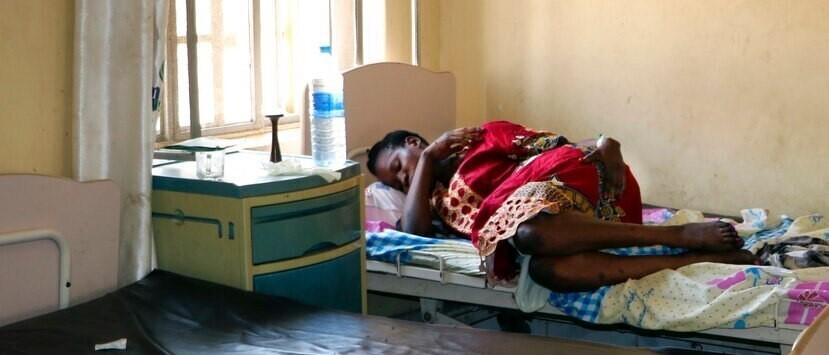Africa-Press – South-Sudan. Amidst the deteriorating economy in South Sudan, many citizens continue to experience great suffering due to a lack of basic health services. Some citizens say many are even lacking life-saving medicines in villages across the country.
Citizen Irumu Jacki, who lives in Trangori village in Eastern Equatoria, said the majority of her community are suffering as they lack life-saving medicines in her village.
“Sometimes when people get sick in the village, we do not find enough life-saving medicines. There are only medicines such as Metrozone, Panadol, and anti-Malaria.” She added that if a person needs further checkups such as X-Ray and others, they are not available. “Even if we reach the health centre, strong and rare medicines are only available in private pharmacies, and these pharmacies did not come to invest in villages because of poor services, especially infrastructure.”
South Sudanese legal activist Khansa Ibrahim says that the country’s constitution stipulates the right of citizens to access basic services, including education, health, and others. She explained that the state is obliged to provide services to its citizens, such as schools and hospitals, to help the vulnerable citizens to obtain health services and receive medicines and at the same level of
services that the citizens receive from private facilities. “Any citizen who goes to the hospital must receive treatment through medical personnel to serve the citizen,” she narrates. “This is one of the rights stipulated in the Constitution of South Sudan.”
Radio Tamazuj randomly talked to some citizens around the country about health services in their area, and what the government is doing. Stella Sonya, a resident of Ibalo village in Eastern Equatoria state, says that her area has no sufficient medicines to treat patients, and sometimes the necessary medicines such as Panadol and Anti-Malaria are lacking, and sometimes citizens die on the road due to poor health services.
Juba resident Tabitha said it is her right as a citizen that the state provides services to them in cooperation with the citizens because the government without the citizens will not be able to work. “The hygienic environment around the neighbourhoods [in Juba] is not clean, so the government must work on that in addition to the provision of water,” she said. “We have not received our wages for a long period of time. This is difficult for the government to look into. In addition, we suffer from the problem of lack of drainage within the city, which must be solved.”
On the same note, Batwil Simbi said that the state needs to engage in serious work to be able to provide services to the citizens, and the first of these services is to provide security for the citizens in order to ensure the delivery of the rest of the services in various regions. Secondly, the provision of health services and improvement of infrastructures such as roads, public utilities, electricity and others. “These are the simple things that must be provided to the citizens in South Sudan,” Simbi stressed.
Governor of Central Equatoria State, Emmanuel Adil Anthony says that recovering from the effects of the long war in the country is the priority for the government.
“The issue of providing services to citizens is important especially since most of the infrastructure in this state has been destroyed due to the war. Health centres, schools and roads were destroyed, ” Adil narrates. “We are working to rebuild schools, health centres and roads to contribute to the return of citizens to their homes, ” Governor Adil told Radio Tamazuj.
Civil activist Jaafar Moi said South Sudanese are in need of services, pointing out that South Sudanese suffer in obtaining the most basic services. “The government now must strive to provide services to the citizens,” he said. “They must look at the suffering of the people and solve it, just as they care about members of parliament. This includes the provision of schools, security, health, roads and others, these projects must be implemented.”
In light of the suffering of citizens and the weakness of the government to provide quality health services, the question remains, what should be done to end the suffering of the citizens? Citizen Irumu Jackie answers again, “The government should provide health services to the citizen, provide trained and qualified health cadres to provide health services to citizens in remote villages, establish health facilities with good specifications, and provide medicines to serve the citizens there because many citizens suffer in transferring patients from villages to the city for treatment. Some die because of poor health services.”






